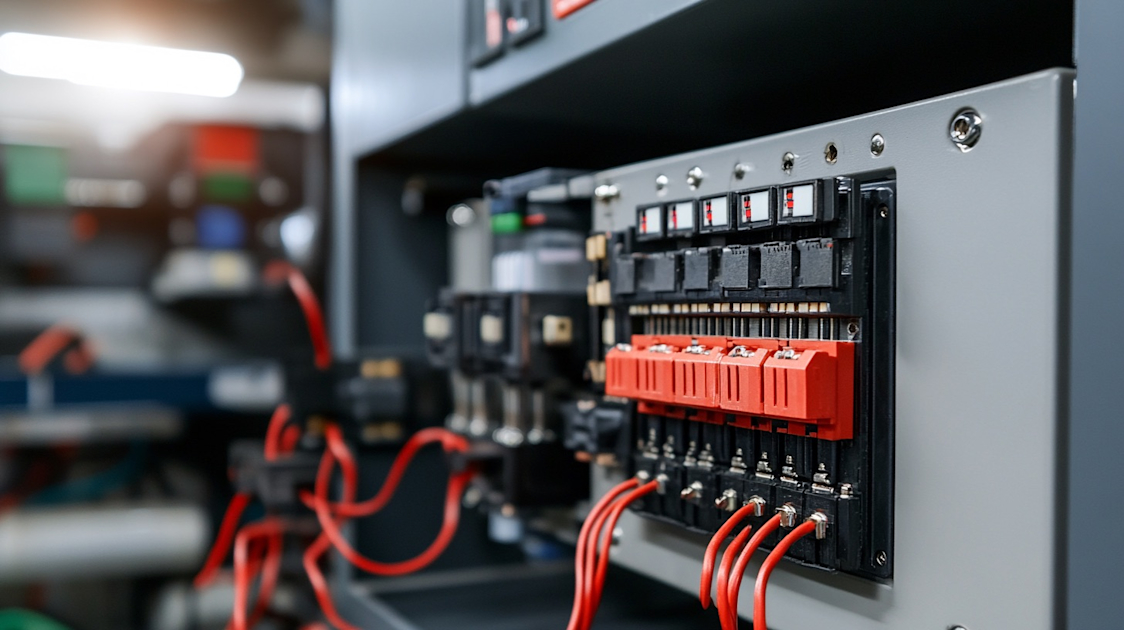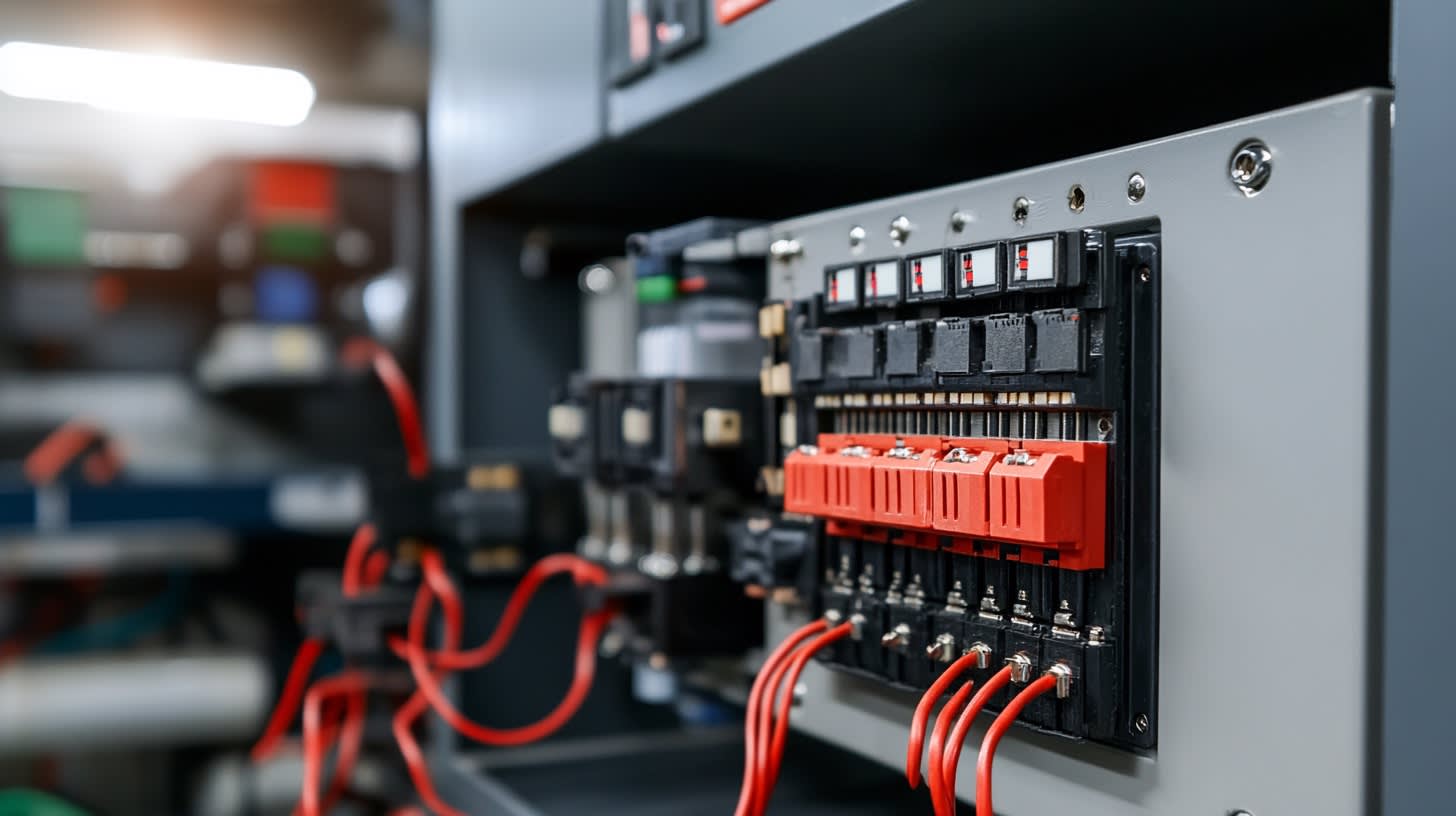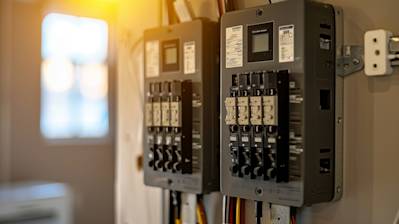When it comes to electrical components in our homes and offices, the awareness and knowledge about items like circuit breaker fuses are often limited. It's crucial to understand the role of this electrical device in ensuring your safety and preventing potential electrical mishaps. So, let's delve into deep and understand all about circuit breaker fuses.
What Exactly are Circuit Breaker Fuses?
Circuit breaker fuses act as a significant protective element in the electrical circuit system. They save electrical devices from overloads by acting as the first line of defense, allowing a safe path for the surplus electrical current to flow away. Circuit breaker fuses are an essential component to prevent any electrical fire due to overheating or excess current flow. They act almost instantly during fluctuations and restore the balance in the electrical circuit.
Components of Circuit Breaker Fuses
Circuit breaker fuses are made up of several components. The main ones are:
- Metal wire or filament: When the current in the circuit exceeds the rated level, this gets heated and melts, breaking the circuit and stopping the flow of electricity.
- Container filled with non-conducting material: This container houses the metal wire. It's made from a material that can withstand the heat generated when the wire melts.
- Fuse Base and carrier: Both hold and protect the fuse wire.
Working of Circuit Breaker Fuses
Circuit breakers fuses are skillfully designed to protect electrical circuits by effectively breaking the circuit when there is an overload or a short circuit. Here is a step-by-step guide to how a circuit breaker fuse works:
- When there is a surge in electrical current flow beyond the defined limit, the wire within the fuse heats up.
- As a result of this heating, the wire eventually melts.
- This breakage or 'blowing' of the fuse, as it is commonly called, interrupts the circuit and prevents the passage of surplus electricity.
- The electrical device is thus safely disconnected from the source of power, preventing any potential damage to the device or risk of electrical fire.
Different Types of Circuit Breaker Fuses
Knowledge of the types of fuses can help you make an informed decision about the protection needed for your electrical circuits. The following are the commonly used types:
Plug Fuse: It is the most commonly used fuse in residential homes. It works by screwing in/out of the fuse holder and it's easy to replace.
Cartridge Fuse: These are used in situations where high voltage is in play. They are divided into two types – Ferrule and Knife type.
All-Purpose HH Fuse Link: These are highly versatile and provide protection against motor short circuits, transformer, and service entrance fuses.
Open Link J Fuse Link: These are generally found in industrial settings where there is a need for high voltage protection.
How to Replace a Circuit Breaker Fuse
Safety is paramount when you're dealing with electrical components. So, when it comes to replacing a blown circuit breaker fuse, you'll want to make sure you do it properly to prevent any mishap.
Step 1. Identify the Blown Fuse: The first step is to locate & identify the blown fuse. Circuit breakers fuses with clear casing will have a visible break or darkened color when blown.
Step 2. Turn off the Main Power: Before proceeding with the exchange, ensure that the main power supply is turned off. This ensures that no current is flowing through the circuit during the replacement process.
Step 3. Remove the Blown Fuse: Carefully, using a fuse puller if available, remove the blown fuse from its socket.
Step 4. Replace with a New Fuse: Make sure you replace with a fuse carrying the same rating. Forcing a bigger fuse can cause damage to the circuit or even cause electrical fires.
Step 5. Turn on the Main Power: After the replacement, turn the main power back on to ensure the circuit is functioning correctly with the new fuse installed.
Frequently Asked Questions about Circuit Breaker Fuse
How does a circuit breaker fuse work?
A circuit breaker fuse works by monitoring the amount of electric current flowing through a circuit. When it senses an overload or short circuit, it trips the circuit to interrupt the flow. Once the problem is resolved, the circuit breaker can be reset and the electrical flow resumes.
How do I know if my circuit breaker fuse is bad?
Several signs indicate that your circuit breaker fuse might be bad: frequent tripping, inability to stay reset, or unusual sounds. For some older breakers, scorch or burn marks may appear, signifying that you need to replace your fuse.
What's the difference between a circuit breaker and a fuse?
While botha circuit breaker and a fuse serve the same purpose of interrupting the flow of electricity in case of an overload or short, their operations vary. A fuse melts when overloaded and needs replacing afterwards, while a circuit breaker just trips and can be reset.
When should a circuit breaker fuse be replaced?
If your breaker is not resetting properly, trips frequently, or shows visible signs of damage like burnt marks, it could be a sign that the circuit breaker fuse needs replacement. If these signs persist even after replacing the fuse, you should seek assistance from a licensed electrician, as it may indicate a more severe electrical problem.
Can I replace a circuit breaker fuse myself?
Replacing a circuit breaker fuse can be a DIY job if you're comfortable with electrical work. Be sure to turn off the main power line to your house and carefully follow the manufacturer's instructions. However, if you're not confident in handling electrical materials, it's safer to hire a professional electrician.
Are there specific brands of circuit breaker fuses that are better than others?
The quality of a circuit breaker fuse often depends on the brand. Well-known brands like Eaton, Siemens, and Schneider Electric are renowned for their high-quality circuit breakers. Though, the "best" brand often depends on individual needs and the particular model of the circuit breaker.
What happens when a circuit breaker fuse blows?
When a circuit breaker fuse "blows" or trips, it physically disrupts the flow of electricity within that circuit. This typically happens when there's an overload or short circuit. After tripping, the breaker needs to be manually reset. Keep in mind; the cause for the tripping should be identified and addressed to prevent future issues.
Is it dangerous if my circuit breaker fuse keeps tripping?
Consistent tripping of a circuit breaker fuse can indicate a serious problem. It could mean there's an issue with your wiring or an appliance that's causing an overload. If your circuit breaker fuse keeps tripping, it's best to consult with a professional electrician to ensure your system’s safety.
How often should I test my circuit breaker fuse?
You should test a circuit breaker fuse once a month to ensure it's in good working condition. Most circuit breakers come with a "test" button. Simply pushing the button should trip the breaker, proving it's functioning correctly. If it fails to trip, then it may need replacement.
Pros of Circuit Breaker Fuses
Easy to Reset
A significant advantage of using circuit breaker fuses is their ease of reset. When the circuit becomes overloaded, the breaker will disconnect the circuit automatically. All you need to do is flip the switch back to reset it. This is significantly easier and less time-consuming than replacing a traditional fuse.
Cost-Effective in the Long Run
Circuit breaker fuses tend to be more cost-effective over a long period. While the initial investment may be higher than traditional fuses, circuit breakers do not need to be replaced every time they trip. Their durability and easy reset function make them more economical in the long run.
Clear Indication of Tripped Circuits
A circuit breaker fuse provides a clear visual indication when a circuit is tripped. This makes it easy to identify and address issues promptly, contributing to a safer electrical system. In contrast, it can be difficult to tell when a traditional fuse has blown unless you physically remove and inspect it.
Increased Safety
Circuit breaker fuses provide a safer alternative to traditional fuses. They are designed to trip more quickly in the event of a power surge, reducing the risk of electrical fires. Additionally, resetting a circuit breaker involves less direct contact with the electrical system, making it safer for individuals with less technical knowledge.
Convenient for Larger Infrastructure
For larger infrastructure, such as office buildings or homes with multiple electrical circuits, circuit breakers are a more practical choice. They allow for easier identification and resolution of tripped circuits without requiring the complete inspection of the fuse box.
Cons of Circuit Breaker Fuses
More Sensitive
While the sensitivity of circuit breaker fuses can be an advantage in terms of safety, it can also be a disadvantage. Because they are designed to trip more quickly in the event of a surge, they may trip too frequently for minor or non-threatening fluctuations. This can be inconvenient and may lead to unwarranted service calls.
Higher Initial Cost
Circuit breaker fuses generally have a higher upfront cost compared to traditional fuses. This could make them a less attractive option for those looking to install a new electrical system on a budget. It’s important to consider the long-term advantages and savings, however, before opting for the cheaper option.
Professional Installation Required
Installing a circuit breaker fuse is not a do-it-yourself job. It requires professional installation which can add to the overall cost. Incorrect installation can also lead to safety risks or damage to the breaker itself.
Possible Malfunctions
Like all mechanical devices, circuit breaker fuses can malfunction. Sometimes, a breaker might not trip even when it should, posing a serious risk. Also, repeated tripping can wear out a breaker over time, causing it to fail.
Not Ideal for Small Applications
For smaller applications, such as a single appliance or device, a circuit breaker fuse might be overkill. A simple fuse could adequately protect against surges without the need for the more complex and expensive breaker.
Specifics and Sizing
The critical function of a circuit breaker fuse also means that it is important to get the specifics and sizing right. The incorrect size can either lead to frequent tripping or, worse, not tripping when needed due to overload. It may require some expertise and calculations to ascertain the correct rating for a circuit breaker fuse.
Summary
So, you can see that a circuit breaker fuse plays an undeniably crucial role in our daily lives. This little device ensures our safety by cutting off the electrical flow the moment it detects a fault. Without the circuit breaker fuse, any malfunctioning appliance or damaged wire could become a potential hazard, resulting in electrical shocks or fire. It's fascinating to think how something so small can be our homes' first line of defense against electrical issues.
The circuit breaker fuse is a perfect blend of technology and safety, designed to be ultra-responsive to fluctuating currents. It prevents electrical overloads and short circuits, stepping in swiftly to stop the power flow. Remember, it's essential to keep your fuses up to date and in tip-top condition. After all, they protect our electrical equipment and, more importantly, our lives.
Finally, understanding the workings of a circuit breaker fuse doesn't have to be complicated. Think of it like a guardian, silently monitoring your home's electric current flow. If something unusual happens, such as a sudden surge in current, the fuse breaks the circuit, stopping the power. Easy to replace and inexpensive, they are the unsung heroes of our electrical systems. So, the next time a fuse blows, spare a thought for the vital role it's playing.
About Sagan Electric
Sagan Electric, based in sunny Sacramento, CA, is your friendly, neighborhood electric service provider you can always rely on. With our team of highly-skilled, qualified, and friendly technicians, we're here to light up your day - literally! Quality service, reliability, and customer satisfaction form the core of our business. Whether you're facing a minor electrical issue or in need of a major installation, Sagan Electric’s got your back. We're not just electricians - we're your partners in ensuring you have safe, efficient, and hassle-free electrical solutions. So, let's tackle those flickering lights, tricky circuits, and stubborn sockets together!
Tags: electricity, safety, fuses,








